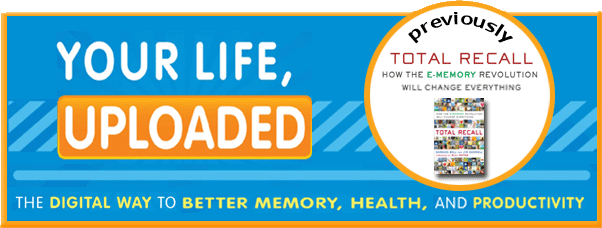Personal Health Tracking: Devices & Experience in Quantified Self (QS) Lifelogging
 Thursday, November 1, 2012 at 8:00PM
Thursday, November 1, 2012 at 8:00PM I'm one of the several thousand organized in about 100 meetup groups who are quantifying there selves, mostly for non-narcissist, self health and wellness benefit, for an overview, see http://en.wikipedia.org/wiki/Quantified_Self. As part of this a number of physicians have created groups who are willing to track to understand various anonomolies e.g. diabetes, heart disease.
As a trackee with a SF physican managed by his quantifying coach, my goal is to understand the behavior of my heart, having had two (heart attacks, bypasses, and pacemakers). In doing this, I hope to understand the conditions for the onset of angina pain at various times when I exert myself too rapidly.
Here are the devices I use and parameters tracked in m first two weeks, ended 1 November 2012:
- BodyTrack site operated at Carnegie Mellon University Bodytrack.org that holds my data from various other sites. This provides many tracks that I use to impute cause and effect. Download for free, coupling it to BodyMedia, Zeo, and Mymee
- BodyMedia armband that captures energy expenditure via heatfux, steps, lying/sleeping, plus manual entry of other parameters that you pay to upload. This is a must have device.
- Fitbit provides a useful approximation to BodyMedia but at no monthly cost.
- Zeo sleep tracker (I have one, but am not bothering with it since BodyMedia captures sleep
- SweetWaterHRV http://www.sweetwaterhrv.com/index.shtml aka SweetBeat heart rate variability (HRV). Requires iStuff (not Mac on tiny iPods) Intersting stress metric--so just try it.
- Mymee -- a tool that allows manual entry of particular data about my exercises that BodyTrack plots: weight, food input, exercise (walk, swim, row), angina pain level, shortness of breath, HRV, and overall daily.
- Other metrics or monitors that may be useful: weight, blood pressure, lung capacity (spirometer), consumer oriented 24 x 7 heart rate monitor aka Holter monitor, glucose
What I have learned about my heart in conjunction with my doctors:
- Its complicated
- Skipping a day of Lipitor and other medication does affect me. Maybe missing beta blockers does, but I need to run an experiment.
- Exercise is more important than I thought--its critical. E.g. after one terrble day with pain, ending with swimming, the next 5 days starting with a record breaking swim were pain free. Conclusion I have to exercise every day. Swimming is best for me because of the constant, forced, breathing regime.
- NOT SO FAST. After those 5 great days, the next couple of days I had angina pains. Was it a warmer day, or is it lung overload, the phlegm coming from pollen or what?
- My Sydney doctor says I can skip one day a week--she also told me to always walk with nitro--something that I don't want to admit to because it is just one step closer to EOL.
- Conclusions: Exercise 6 days a week, use something to reduce or eliminate anything that could be affecting breathing (Lung Flute helps), and check the weather (cold weather in SF is heavy, causes a breathing problem as does, humidity etc.) and then there's diet and digestion .
- My heart seems to be on that knife edge that can go either way when weather, sleep, exercise history, diet, etc. tips the balance.
- Its complicated
 Medical devices,
Medical devices,  QS,
QS,  Quantitative Self in
Quantitative Self in  Health,
Health,  Immortality
Immortality 
Reader Comments